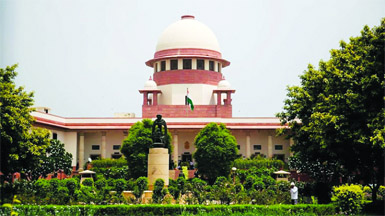SC Mandates Prior Sanction for ED Prosecution
Why in the news?
The Supreme Court ruled that prosecuting public servants under the Prevention of Money Laundering Act (PMLA) requires prior government sanction, potentially impacting ongoing cases involving prominent figures like Arvind Kejriwal and P. Chidambaram.
Background on Prior Sanction and Legal Provisions:
- Legal Basis: Section 197 of the Code of Criminal Procedure (CrPC) requires prior government sanction to prosecute public servants for acts allegedly committed in the discharge of their official duties.
- Exceptions: Sanction is not required for severe crimes like rape, sexual harassment, or human trafficking.
- Objective: This provision protects public officials performing official duties in good faith but does not shield acts disguised as official to commit crimes.
Supreme Court Ruling on November 6, 2024:
- The SC ruled that Section 197(1) of the CrPC applies to cases under the Prevention of Money Laundering Act (PMLA), requiring prior sanction for prosecuting public servants.
- This verdict was delivered by a bench comprising Justices A.S. Oka and Augustine George Masih in the case involving IAS officers Bibhu Prasad Acharya and Adityanath Das.
- Upholding a 2019 Telangana HC order, the SC reasoned that PMLA’s provisions align with CrPC requirements, thus necessitating prior sanction.
- The court emphasized a connection between the accused’s official duties and alleged crimes, justifying the application of Section 197(1).
Money Laundering and the Prevention of Money Laundering Act (PMLA), 2002:
Money Laundering:
- Illegal process of making money from criminal activities (e.g., drug trafficking, terrorism) appears legitimate.
- In terrorism financing, funds are used for arms, training, and other extremist activities.
- The process “cleans” dirty money to make it seem lawful.
PMLA, 2002:
- Enacted to prevent money laundering and confiscate related property; enforced in 2005, amended in 2009 and 2012.
- Defines money laundering (Sec. 3) as activities involving proceeds of crime, projecting them as clean.
- Obligates banks/financial institutions to verify and maintain client identity records.
- Empowers ED to investigate and attach property linked to laundering.
- Provides for Special Courts to try offenses and enables international agreements for enforcement.
Sources Referred:
PIB, The Hindu, Indian Express, Hindustan Times




